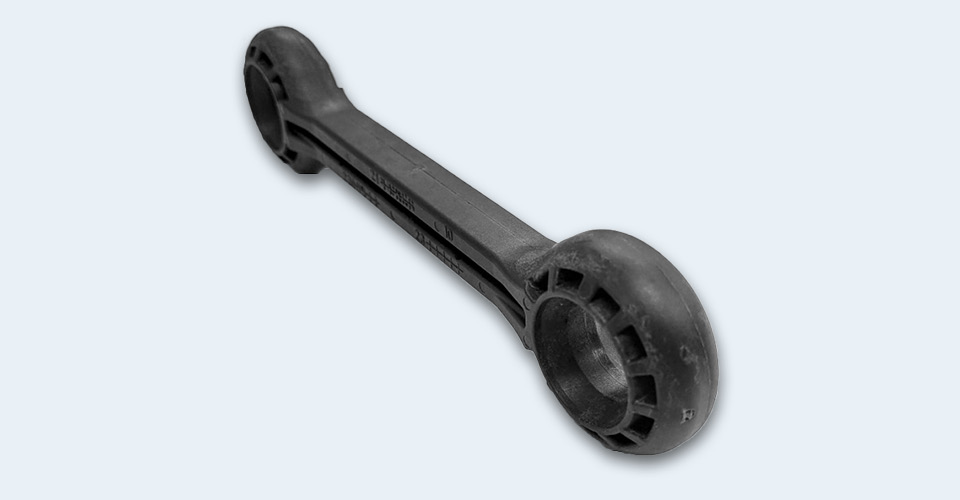Development of sustainable, durable components for demanding operating conditions


By reducing the amount of material used and using biobased composites, the CO2 requirement in the production of plastic components in consumer goods is to be cut by up to 75 percent. The project partners are working together to develop material-saving design methods and bio-based composites for durable and highly stressable components - with specific application examples from the field of automotive engineering serving as a benchmark.
In order to reduce the amount of material used, the design processes are to be improved for use in consumer goods subject to vibration. This will increase the lightweight construction potential and the associated resource efficiency in the downstream as well. Among other things, the project is developing new calculation methods that take into account the influences of manufacturing on the quasi-static and dynamic behavior of the materials. A prerequisite for exploiting the lightweight potential is the precise characterization of the materials used and the validation of the simulation methods.
The use of bio-based materials achieves significant savings in material-related greenhouse gas emissions. In the "COOPERATE" project, the partners are jointly researching substitutes with significantly lower proportions of petrochemically produced components and optimizing them for use in consumer goods subject to vibration. Since bio-based materials achieve a different performance than conventional materials, the climate-neutral substitutes are being further developed in this project and practice-relevant investigations of the material properties are being carried out with regard to structurally important characteristic values.
The new methods and the improved material properties pave the way for the use of new plastics in other fields of technology. Overall, the "COOPERATE" project is pursuing the goals of lightweight construction-related development of resource-efficient processes and the substitution of greenhouse gas-intensive materials.
Project partners:
Projekt management: Fraunhofer-Institut für Betriebsfestigkeit und Systemzuverlässigkeit LBF
Sponsor: Bundesministerium für Wirtschaft und Klimaschutz BMWK